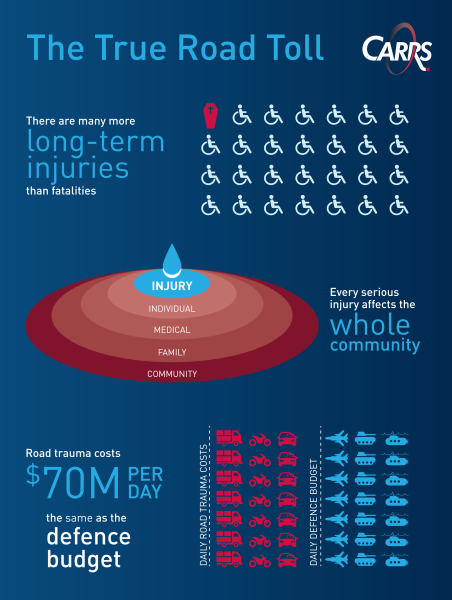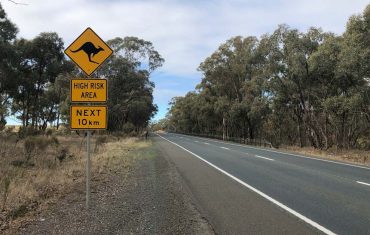
The human cost of distractions on the road
For driversReducing the number of people killed on Australian and Aotearoa New Zealand roads has long been a focus for governments, road safety advocates, motoring bodies and community groups. Yet, despite generations of public road safety campaigns, the fatalities keep climbing.
Provisional figures released by Te Manatū Waka, the Ministry of Transport, New Zealand, revealed 377 lives were lost on the country’s roads in 2022, a rise of 18 percent on the 2021 figure of 319. In Australia, the annual road toll climbed from 1132 in 2021 to 1184 in 2022, a 4.6 percent year-on-year increase.
In both countries, more needs to be done. Because just one life lost is one too many.
The financial cost of road trauma and vehicle accidents is well-known. The most recent figures from Australia’s Department of Infrastructure, Regional Development and Cities shows the annual cost of road trauma to the national economy to be around AUD$27 billion dollars. In Aotearoa New Zealand that figure is NZD$4.46 million, or NZD$467,700 for every serious injury, and NZD$25,300 for every minor injury.
For perspective, this infographic from the Centre for Accident Research and Road Safety Queensland (CARRS-Q) shows road trauma costs Australia approximately AUD$70 million per day; the same as the nation’s defence budget.

For businesses that rely on motor vehicles, having a car, truck or bus off the road has a significant financial cost. Apart from the actual repair bill, there’s a myriad of expenses that might not readily come to mind to anyone – lost productivity, administration charges, increased insurance premiums, possible ongoing workplace health and safety costs in the form of workers’ compensation and even third-party injury expenses.
But the impact on people is where it really hurts.
The devastating repercussions of road trauma
In an interview with the ABC, CARRS-Q’s Professor Narelle Howarth explained that the cost of road trauma “does not provide a true reflection of the impact of road trauma”. She admits, “Fatalities are just the tip of the iceberg and hide the true magnitude and nature of road trauma.”
The psychological impacts of road trauma are significant. Acting Sergeant Peter Cowan, the officer in charge of Queensland’s third-largest forensic crash unit, based on the Sunshine Coast, told the ABC that being alongside those grieving a loved one was “still taxing and devastating every time”.
“The amount of different reactions to grief I’ve seen is incredible, things you would never think would occur,” he says. “From people physically fighting me, that denial or disbelief is a very common one. People physically assault me. I’ve had many, many things thrown at me. Some people just fall to the floor in a ball of mess, crying and in tears.”
According to Acting Sergeant Cowan, guiding family through the trauma of road fatality is something that can take years.
How road trauma impacts on your organisation
In a HR setting, it’s becoming clearer there are challenges in managing the return to work of employees involved in motor vehicle accidents beyond the physical benchmarks. This also suggests the possibility of increases in staff turnover in situations where the employees are so affected that they feel no longer able to do their jobs.
In the bigger picture, there are also monumental risks to an organisation’s reputation when employees of a company are involved in motor vehicle accidents, especially if the company’s vehicle fleet isn’t up-to-date or lacks modern safety features.
As Chris Park, Manager of Strategic Fleet Consulting for SG Fleet Australia and New Zealand notes, “[Vehicles] are a place of work, and they need to be fit-for-purpose, well-maintained and safe. If somebody has a serious accident or fatality, what’s that going to look like in terms of reputational damage to the organisation? There’s a huge reputational risk around really old fleets. There’s a very significant risk if they’re poorly maintained.”
Making sure your people are safe
So, how can HR professionals play a role in minimising the impacts of the human costs associated with road trauma?
Susan Harris, CEO of transport sustainability and technology not-for-profit, Intelligent Transport Systems (ITS), believes HR managers have an opportunity to work alongside fleet managers to reduce the human cost of road trauma. Technology has a role to play but managing and promoting the right kind of driving behaviours is a vital initiative to champion within organisational departments.
“Let drivers know they’re driving for work,” explains Susan. “Let them know you have an expectation as to how they should be driving. You should also have some information to give them about how they’re driving.”
“Work with them to coach them,” she concludes. “And help bring them up to the level of driving that your organisation is looking for. You need to be working with your people, rather than enforcing a Big Brother approach.”

Start a conversation with SG Fleet today to keep your business moving safely.
 Driving Insights
Driving Insights



